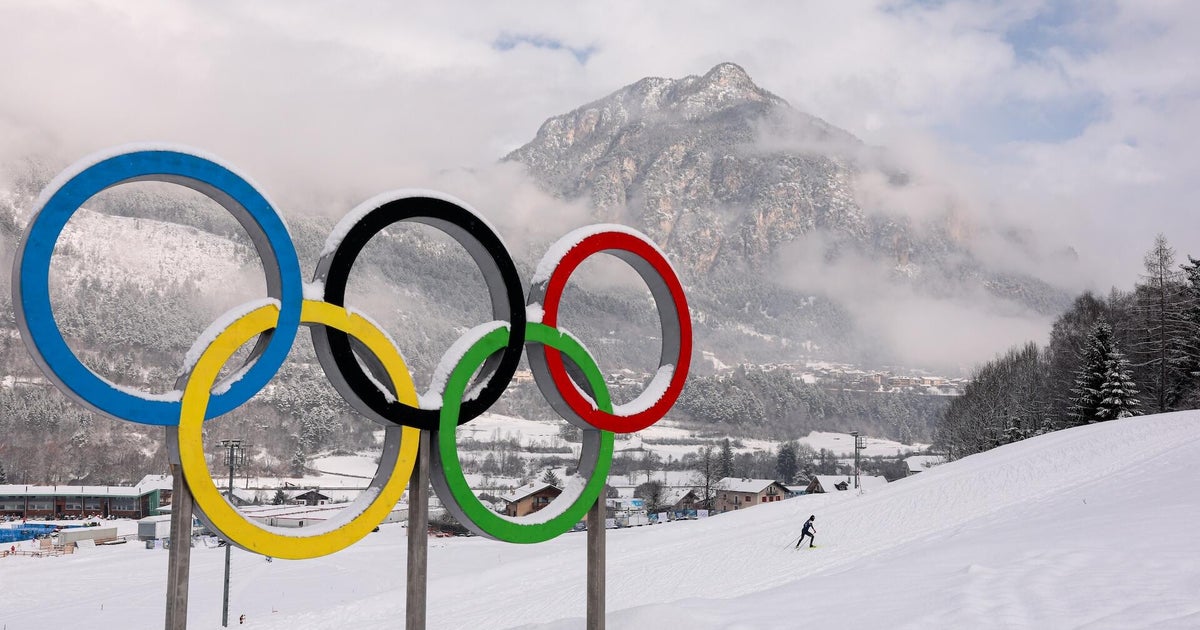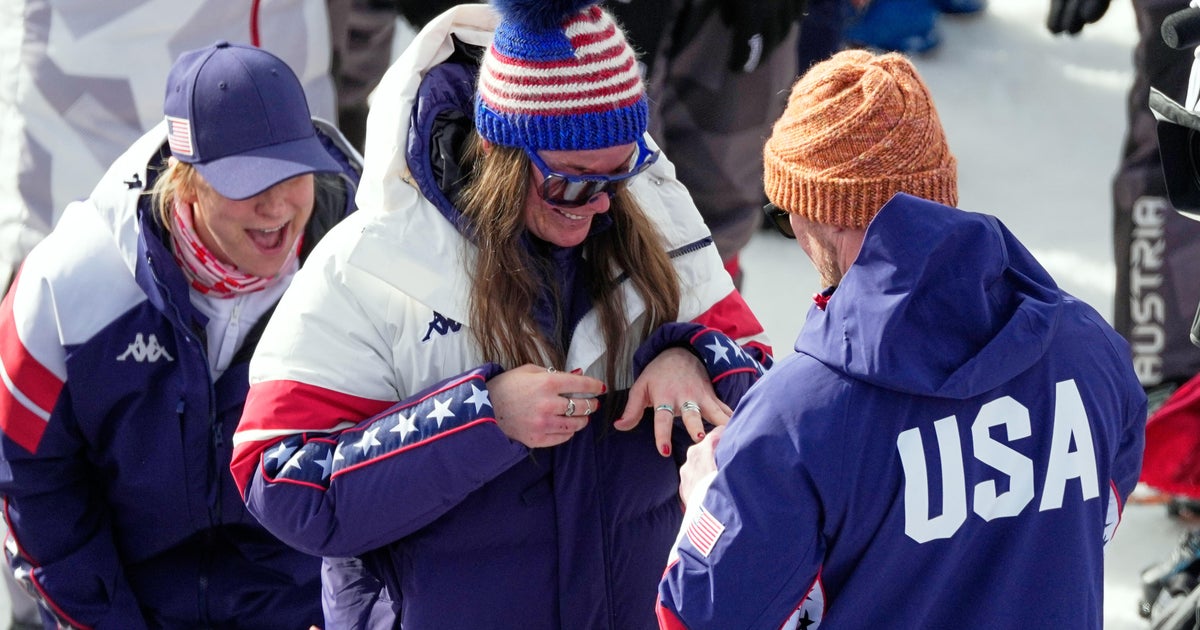Controversial Nike Vaporfly running shoe cleared for use at Olympics
The international governing body for running sports on Friday cleared the way for competitors at the 2020 Summer Olympics in Tokyo to wear Nike's controversial VaporFly shoes, which have been shown to make runners faster.
Some distance runners say the shoes, which have been on the market since 2017, are helping to advance the sport of running. Others contend they confer an unfair advantage. World Athletics — the sports governing body formerly known as the IAAF — has now weighed in, issuing new guidance on what's permissible in the technology in elite runners' shoes.
The guidance stipulates that the thickness of a shoe's sole may not exceed 40 millimeters. It also limits to one the number of carbon fiber plates allowed in a sneaker. The VaporFlys have a 36 millimeter sole and a single, full-length carbon plate designed to prevent energy loss, according to Nike.
The carbon fiber plate is a "built-in secret weapon" that delivers "a propulsive sensation, for speed with every stride," the sports apparel and equipment maker says on its website.
World Athletics president Sebastian Coe, a four-time British Olympic medalist, said in a statement that "it is not our job to regulate the entire sports shoe market, but it is our duty to preserve the integrity of elite competition by ensuring that the shoes worn by elite athletes in competition do not offer any unfair assistance or advantage."
The amended rules also require that beginning April 30, shoes worn by runners in competition must have been commercially available for at least four months. This effectively blocks Nike rivals that are developing similar technology from manufacturing shoes that will appear in competition at the upcoming Olympic Games.
The VaporFlys have lit up the running scene, both with their bright colors and the controversy surrounding the supposed advantage they give runners. When Kenyan long-distance runner Eliud Kipchoge broke the milestone two-hour marathon barrier in Vienna in October, he was surrounded by a team of pacers sporting bright-pink VaporFlys. Kipchoge wore a prototype Nike sneaker that does not meet World Athletics' competition standards. Subsequent research found that the shoes can make runners 4% faster.
"As we enter the Olympic year, we don't believe we can rule out shoes that have been generally available for a considerable period of time, but we can draw a line by prohibiting the use of shoes that go further than what is currently on the market while we investigate further," Coe said on Friday.
Running coach John Henwood, who competed in the 2004 Summer Olympic in Athens, said Nike's technology, coupled with World Athletics' ruling, will benefit the sport of running. He compared the advances in shoes to the steady improvements in running tracks.
"It's similar to how tracks have evolved over the last 100 years for faster performance," he told CBS MoneyWatch.
But Henwood acknowledged that some record holders' achievements could quickly lose their luster because of rapid technological advances. "I feel for those elite runners who came to the end of their career without these shoes: They may have their times wiped from the record books much sooner than they thought," he said.
Carol Garber, director of Applied Physiology at the Teachers College at Columbia University, also supports the decision.
"As long as it's a standard that's agreed upon by a governing agency and it's something that's available to all athletes, from that standpoint, I don't think it gives anyone an unfair advantage," she said.
Some racers object
Not all elite runners think the VaporFly should be permitted in competition. Travis Hawkins, a New York City-based endurance coach and former professional Ironman triathlete, opposes the sneaker in part because it can only confer advantage to runners who can afford the shoe's hefty $250 price.
"Coming from the sport of triathlon where the barrier to entry is notoriously high, with race entry fees, pool memberships, wetsuits and the endless arms-race black hole of cycling equipment, I find that the egalitarian nature of running is sacred," Hawkins told CBS MoneyWatch.
He said the rules run counter to World Athletics' own acknowledgment that shoes must not confer an unfair advantage. "I couldn't agree with that more, and I don't feel that they are keeping with this in allowing Nike's current shoe."
Nike did not immediately reply to a request for comment.




